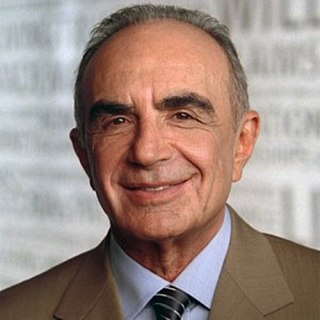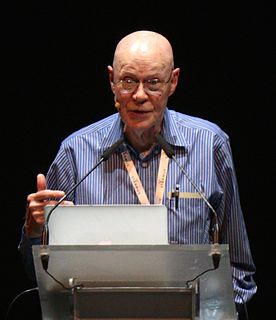A Quote by Carl Sagan
We on Earth have just awakened to the great oceans of space and time from which we have emerged. We are the legacy of 15 billion years of cosmic evolution. We have a choice: We can enhance life and come to know the universe that made us, or we can squander our 15 billion-year heritage in meaningless self-destruction. What happens in the first second of the next cosmic year depends on what we do, here and now, with our intelligence and our knowledge of the cosmos.
Quote Topics
Awakened
Billion
Choice
Come
Cosmic
Cosmos
Depends
Destruction
Earth
Emerged
Enhance
Evolution
First
Great
Happens
Here And Now
Heritage
Intelligence
Just
Know
Knowledge
Legacy
Life
Made
Meaningless
Next
Now
Oceans
Our
Second
Self
Self-Destruction
Space
Space And Time
Squander
Time
Universe
Us
Which
Year
Years
Related Quotes
We've begun at last to wonder about our origins, star stuff contemplating the stars, organized collections of ten billion billion billion atoms contemplating the evolution of matter, tracing that long path by which it arrived at consciousness here on the planet Earth and perhaps throughout the cosmos. Our obligation to survive and flourish is owed not just to ourselves but also to that cosmos, ancient and vast, from which we spring.
Our planet has been around only for four and a half billion years. Let's imagine a planet that has life on it such as life is on Earth and it's seven billion years old. Let's say that planet evolved intelligence. Well, that intelligence would be way more advanced than what we call intelligence here on Earth. How long has intelligence been around on Earth as we've come to define it?
If you represent the Earth's lifetime by a single year, say from January when it was made to December, the 21st-century would be a quarter of a second in June - a tiny fraction of the year. But even in this concertinaed cosmic perspective, our century is very, very special: the first when humans can change themselves and their home planet.
If the age of the Earth were a calendar year and today were a breath before midnight on New Year's Eve, we showed up a scant fifteen minutes ago, and all of recorded history has blinked by in the last sixty seconds. Luckily for us, our planet-mates--the fantastic meshwork of plants, animals, and microbes--have been patiently perfecting their wares since March, an incredible 3.8 billion years since the first bacteria. ...After 3.8 billion years of research and development, failures are fossils, and what surrounds us is the secret to survival.
The cosmic calendar compresses the local history of the universe into a single year. If the universe began on January 1st it was not until May that the Milky Way formed. Other planetary systems may have appeared in June, July and August, but our Sun and Earth not until mid-September. Life arose soon after. We humans appear on the cosmic calendar so recently that our recorded history occupies only the last few seconds of the last minute of December 31st.
Our entire universe emerged from a point smaller than a single atom. Space itself exploded in a cosmic fire, launching the expansion of the universe and giving birth to all the energy and all the matter we know today. I know that sounds crazy, but there’s strong observational evidence to support the Big Bang theory. And it includes the amount of helium in the cosmos and the glow of radio waves left over from the explosion.
Radio Astronomy has added greatly to our understanding of the structure and dynamics of the universe. The cosmic microwave background radiation, considered a relic of the explosion at the beginning of the universe some 18 billion years ago, is one of the most powerful aids in determining these features of the universe.
I remind myself that the universe is 15 billion years old, and I'm only 46 years old, so my perspective is sort of limited and fear-based and skewed. So I sort of turn things over to whatever you want to call it - whether it's God, or the universe or the spirit of the universe - and I just sort of turn things over to God and hope that this spirit that has been around for 15 billion years will have a better understanding of how things should be than I do.






























